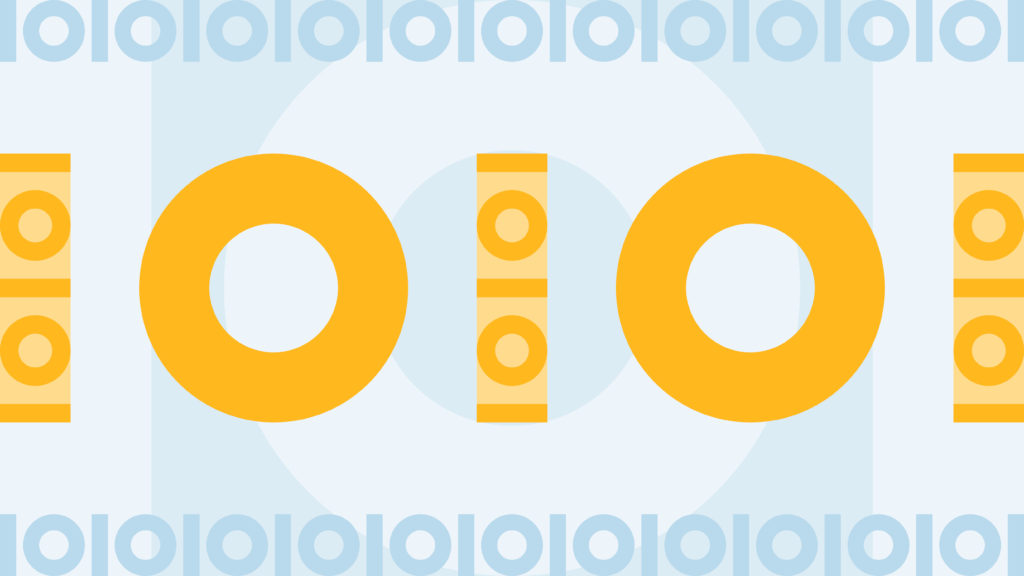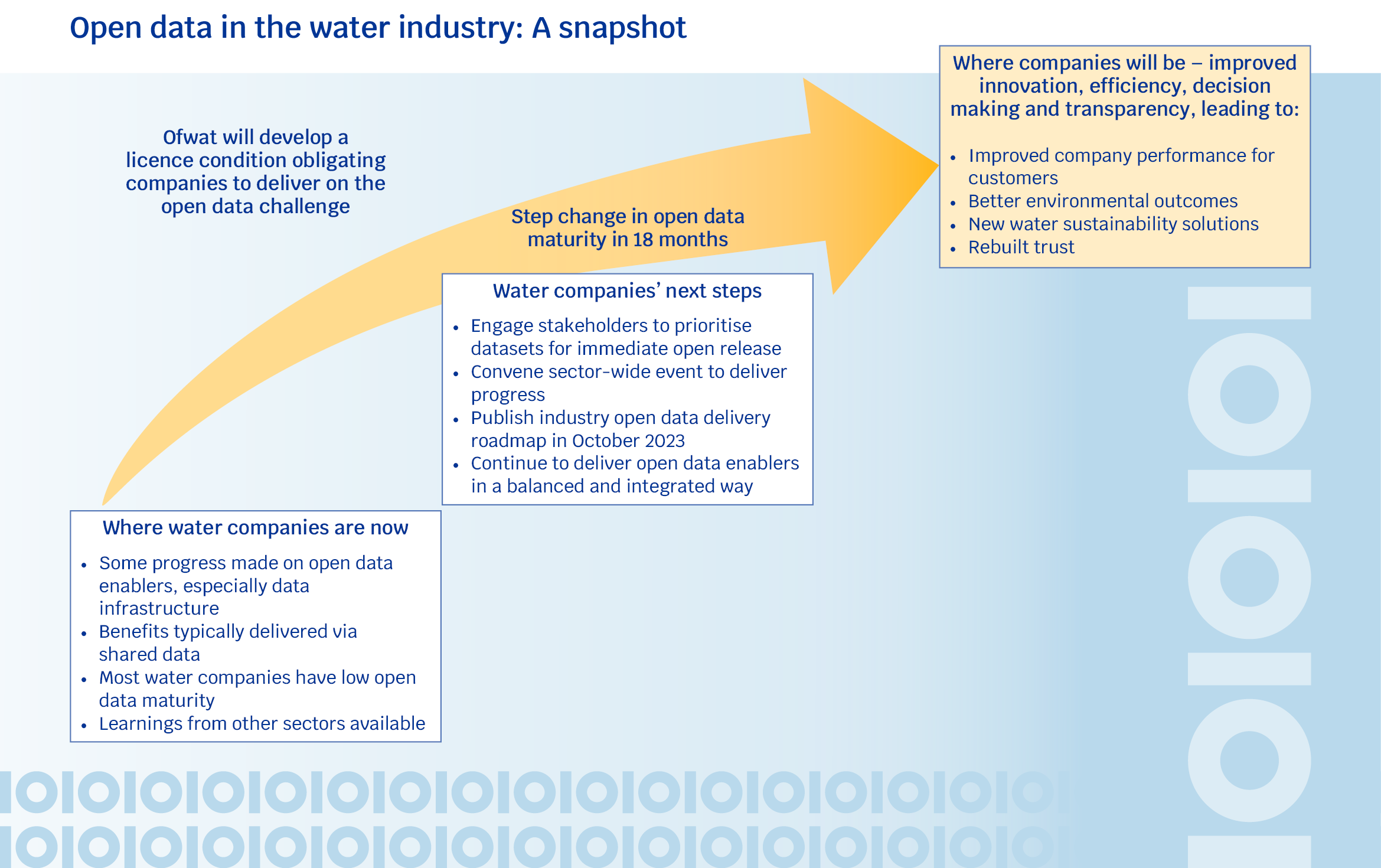Open data means making data freely available to everyone to access, use and share. Data and the people, processes and technology that support it are important assets – like water pipes and treatment works.
Data is essential for developing insight, making informed decisions and improving services. The use of open data could transform water and wastewater service delivery by increasing transparency, increasing efficiency, enhancing customer experience, and stimulating innovation.
On this page you can find information on:
• The water sector and open data
• Assessment of water companies’ progress on open data
• Stream: Unlocking water data
Last updated: 19 December 2023
The water sector and open data
The water sector in England and Wales is host to a wealth of data and information relating to the water and wastewater services that companies directly provide. There is also data held by water companies that could provide better insight on how the water and wastewater system impacts and interacts with communities and the wider environment. This could help improve performance in the here and now and support planning for the future.
In 2023 we published ‘Open data in the water industry: making the change’ setting out our findings from a review of water company progress on delivering open data and next steps. We found widespread public support for water companies opening their data, but that water companies have made little progress in opening datasets.
We called on all water companies to take immediate action to unleash the benefits of open data.
This includes:
- identifying priority data sets for release;
- reviewing datasets that have so far only been shared with limited groups and take steps to make them openly available;
- proactive leadership to develop and publish a clear roadmap by October this year for open data delivery for the industry; and
- releasing data sets with an open licence to encourage information to be freely used.
We will also develop a licence condition obligating water companies to deliver the outcomes and expectations we are seeking on behalf of customers and the environment
We will continue to develop Ofwat’s open data approach and how we can apply open data principles to our work.
Download ‘Open data in the water industry: making the change’
Assessment of water companies’ progress on open data
In 2022 we commissioned consultants PwC to carry out a technical review of progress on open data by the largest water only and water and wastewater companies where we see the impact of open data as having the largest benefits to customers, the environment and society. Open data will benefit other parts of the water sector, such as the business retail market.
We also engaged other stakeholders in the water sector, government agencies and regulators dealing with data in other sectors, environmental bodies, and the general public. We asked them what data companies should make available openly, what the benefits would be, what progress they think companies have made on open data, and what challenges and opportunities people see from opening up more data.
The key findings from PwC’s work were:
- where benefits are being delivered to key beneficiaries, this is typically only through shared data
- there have been a small number of open datasets released
- progress in developing open data enablers (such as, data infrastructure, data culture and capabilities and collaboration) has been limited across the water sector
- the water sector is at the beginning of its open data journey, with the majority of companies being categorised as being in the lower levels of maturity
- there are lessons to be learned from sectors that have further progressed their open data journeys.
PwC set out a number of next steps that water companies can take to increase the level of progress on open data across the water sector.
Suggestions from stakeholders we engaged included:
- the sector focusing on clear objectives and common themes for open data releases;
- making sure that data infrastructure, common standard and governance was developed, while in parallel release more datasets openly in order to learn by doing;
- the importance of companies including a narrative with data releases to help understanding;
- building more data and digital skills across the water sector to take full advantage of open data and digital transformation more generally; and
- the development of feedback loops with data users and other stakeholders to help prioritise data release and deliver benefits.
We used PwC’s report alongside our own work and public engagement to develop our ‘Open data in the water industry: making the change’.
Download PwC’s ‘Open data assessment report – Executive summary’
Download PwC’s ‘Open data assessment report – full report’
Benefits of open data
In 2021 we published H2Open – Open data in the water industry: a case for change discussion paper (also available in Welsh, Mae’r cyhoeddiad hwn hefyd ar gael yn Gymraeg) setting out the benefits of open data and how making more data open would help address some of the challenges the water sector faces from climate change, the environment, changing customer demands and protecting the most vulnerable.
We also published H2Open – Open data in the water industry: a case for change – Case study appendix, which set out several case studies showing open data and digital solutions from within and beyond the water sector.
Stream: Unlocking water data
For the first time ever, water data now has an open sharing platform where information on the UK’s water is unlocked and available for all. You can access the Stream Platform today by following this link: Stream (streamwaterdata.co.uk)
Stream is a sector-wide initiative with a vision to unlock the potential of water data to benefit customers, society and the environment. It received funding through Ofwat’s Innovation fund.
For more information about open data in the water sector, visit the Stream LinkedIn project channel.

